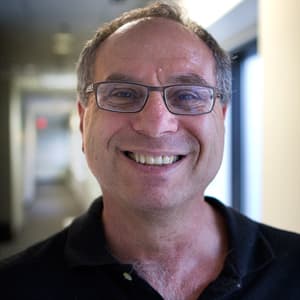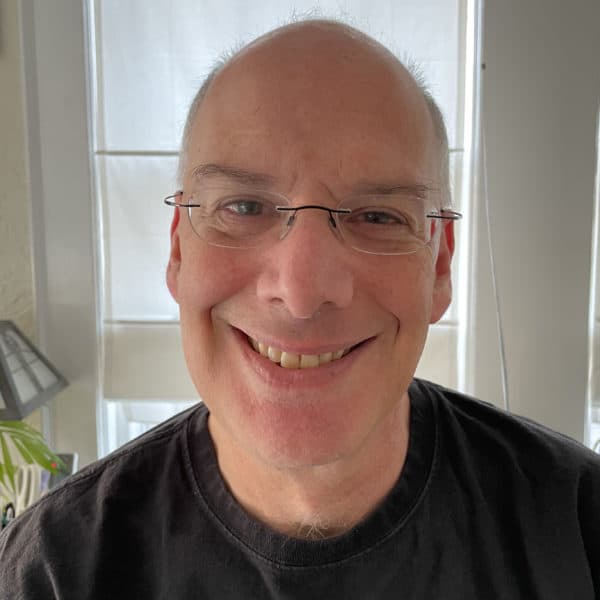Advertisement
Chelsea and Chinatown are building microgrids to solve big energy, climate challenges
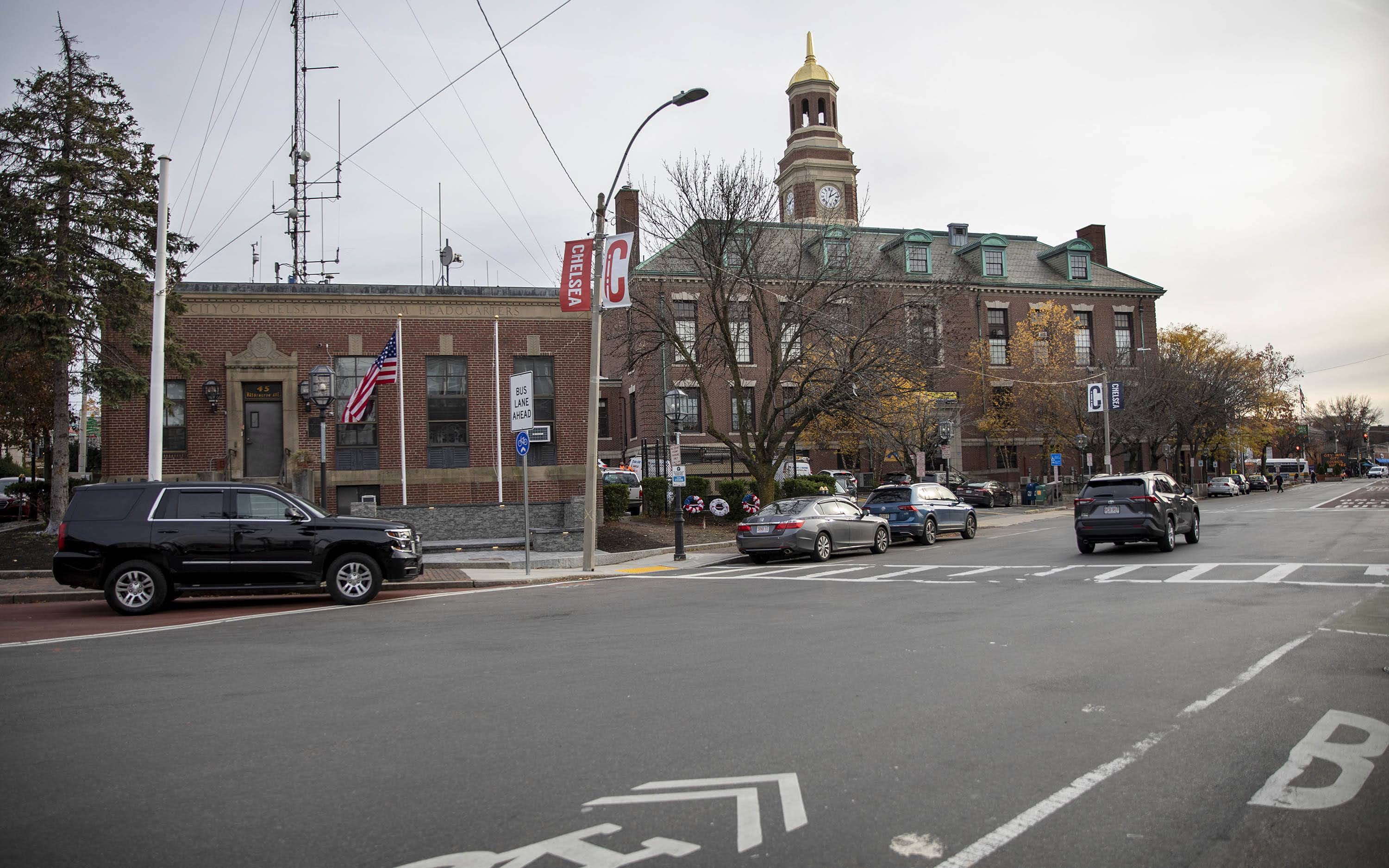
Chelsea and Chinatown are worried about the big picture when it comes to climate change and energy resilience. To address the problems they face, officials and advocates are thinking small.
The two environmental justice communities will soon begin construction of the nation's first cloud-based microgrids. The system's developer believes the building-by-building projects will be more robust, resilient to climate change disasters, and will empower local residents in their energy future.
Microgrids are comprised of batteries and backup diesel generators that are switched on when main power from the electric grid fails. Emergency response engineers call this "islanding," because the mini-systems act as energy islands that keep the lights on during those peak demand hours.
The idea has been around for a while. The U.S. Department of Defense has led the effort to make its facilities more resilient to climate change by constructing the self-contained systems at bases around the world.
The systems planned for the two communities are cloud-based software, so the buildings included in the microgrids won't need to physically connect to control their backup power.
A tale of two cities confronting climate change
As climate change worsens, storms are expected to become more frequent and intense. Operators of the nation's regional power grids say we need to fortify our electric transmission systems to withstand the storms of the future. That need was on vivid display last month, when a nor'easter clobbered Massachusetts, leaving more than half a million residents without power — some for up to four days.
Those warning signs are clear to Chelsea city officials. It's the only municipality in the state where every neighborhood is designated an environmental justice population. Chelsea is the smallest city in the state but carries an outsized environmental burden; All of Logan Airport's jet fuel is stored in or near the city, as is most of the state's road salt and the region's oil heat fuel.
Chelsea's Commissioner of Public Works, Fidel Maltez, said the time to act is now.
Advertisement
"We have over 20% of our residents who live below the poverty line," Maltez said. "We know that, in a climate disaster, these are the residents that are going to be impacted."
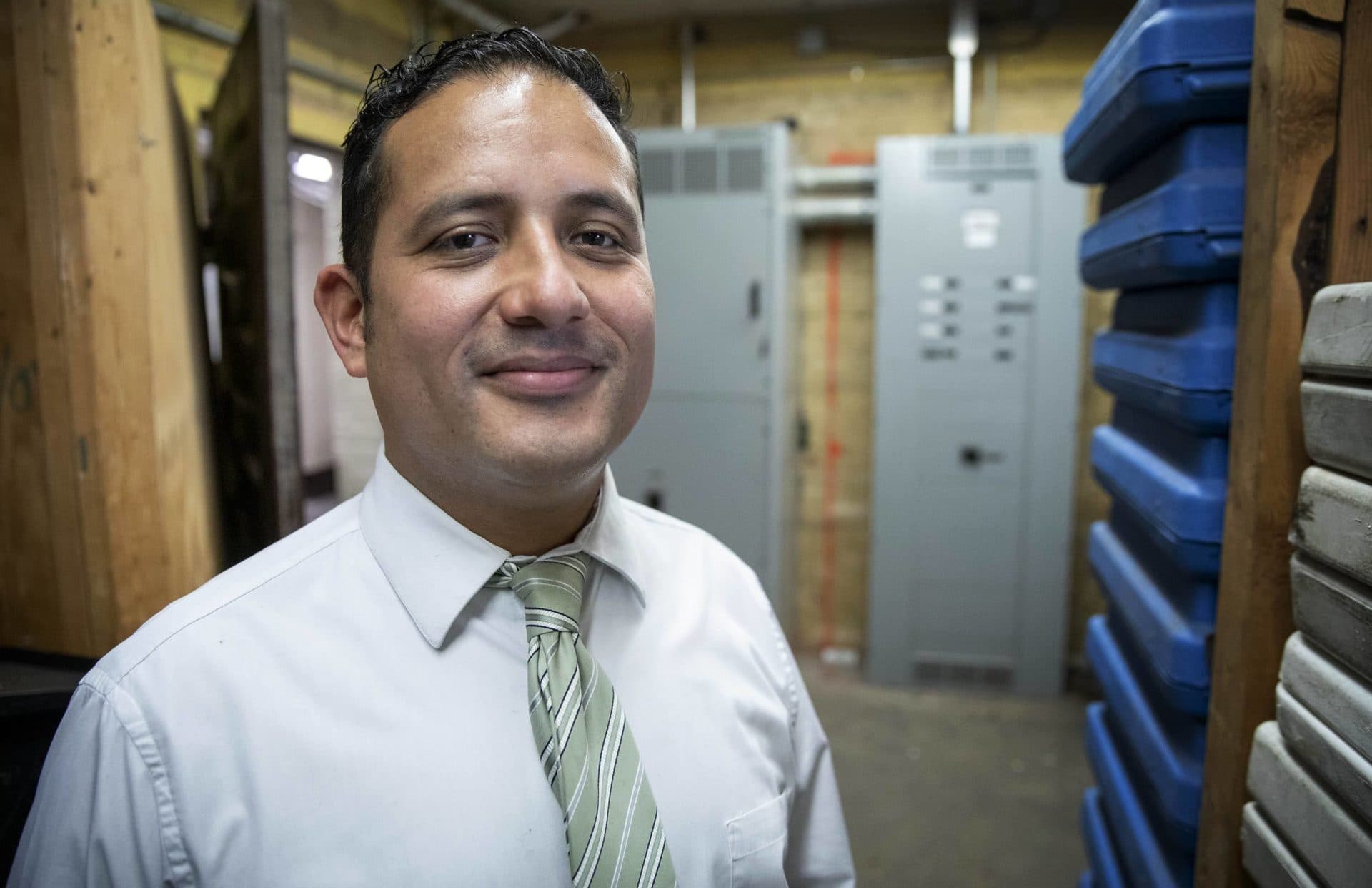
The city's plans to build a cloud-based microgrid is designed to ensure the most vulnerable residents of this city are protected if the electric grid goes dark.
"We are a coastal community," says Maltez, "when a climate crisis hits Chelsea, city hall is going to have its lights on."
The microgrids have two goals, according to David Dayton, the engineer who designed the systems: to power buildings and empower people on the front line of climate change.
"Low income folks have no voice and they don't have a say in the source of their energy, the location of substations, how [electricity] is distributed, how it's priced," he said.
The need for resilient power was dramatically demonstrated in 2000, when a major power outage hit the city.
"We lost complete power, everything," said Paul Kooloian supervisor of the city's 911 dispatch. He's worked in the emergency response office for 38 years and still vividly remembers that day.
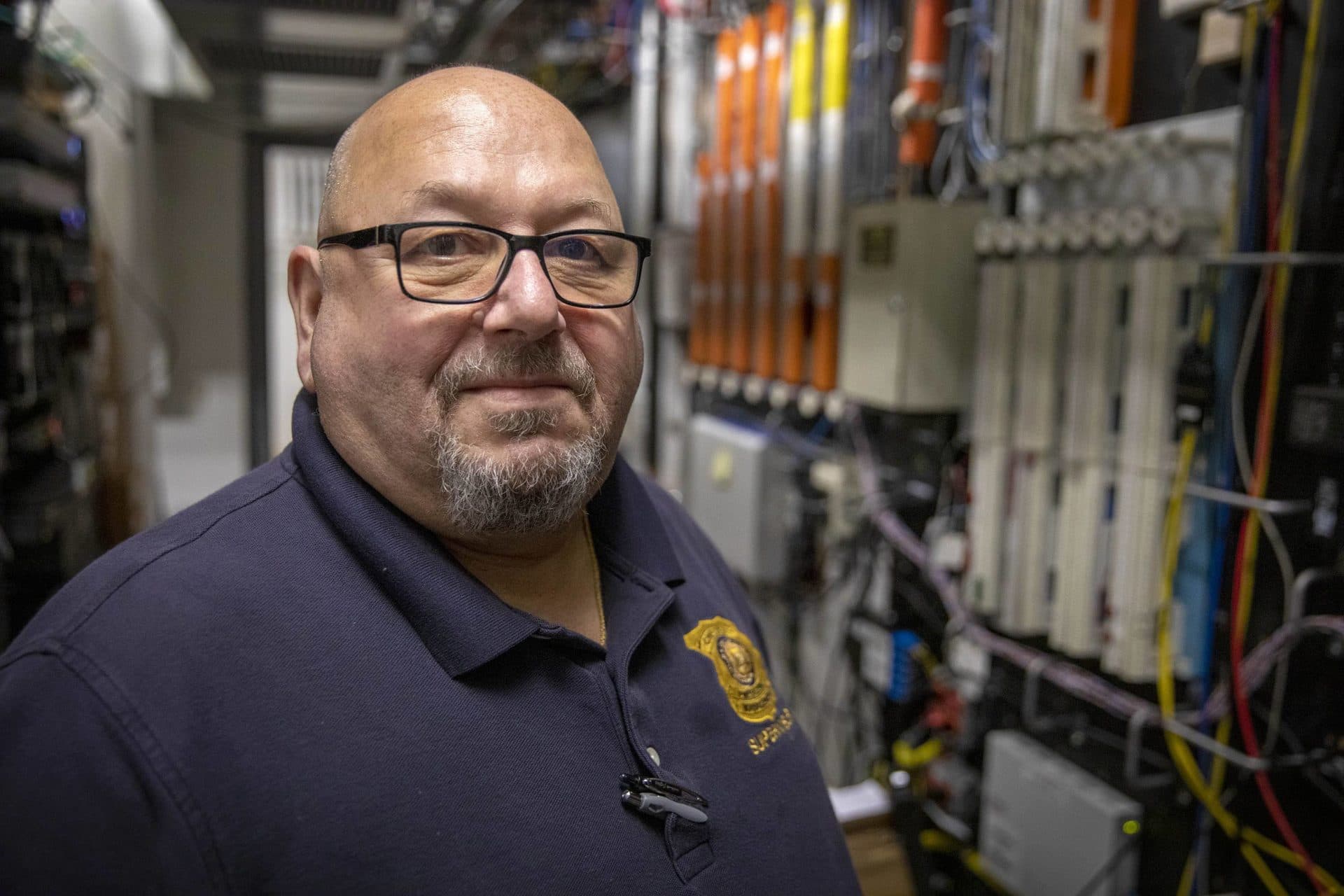
"The whole city shut down; traffic lights, street lights," he said. "We were in here operating with portable radios and flashlights."
Kooloian is one of several city officials who supports the community's effort to make the power supply more climate resilient.
How microgrids work
Dayton designed the unique cloud-based control system at the heart of the new microgrids. His group, Resilient Urban Neighborhoods, has teamed up with several local environmental nonprofits, including Chelsea's GreenRoots, to bring the system to local communities.
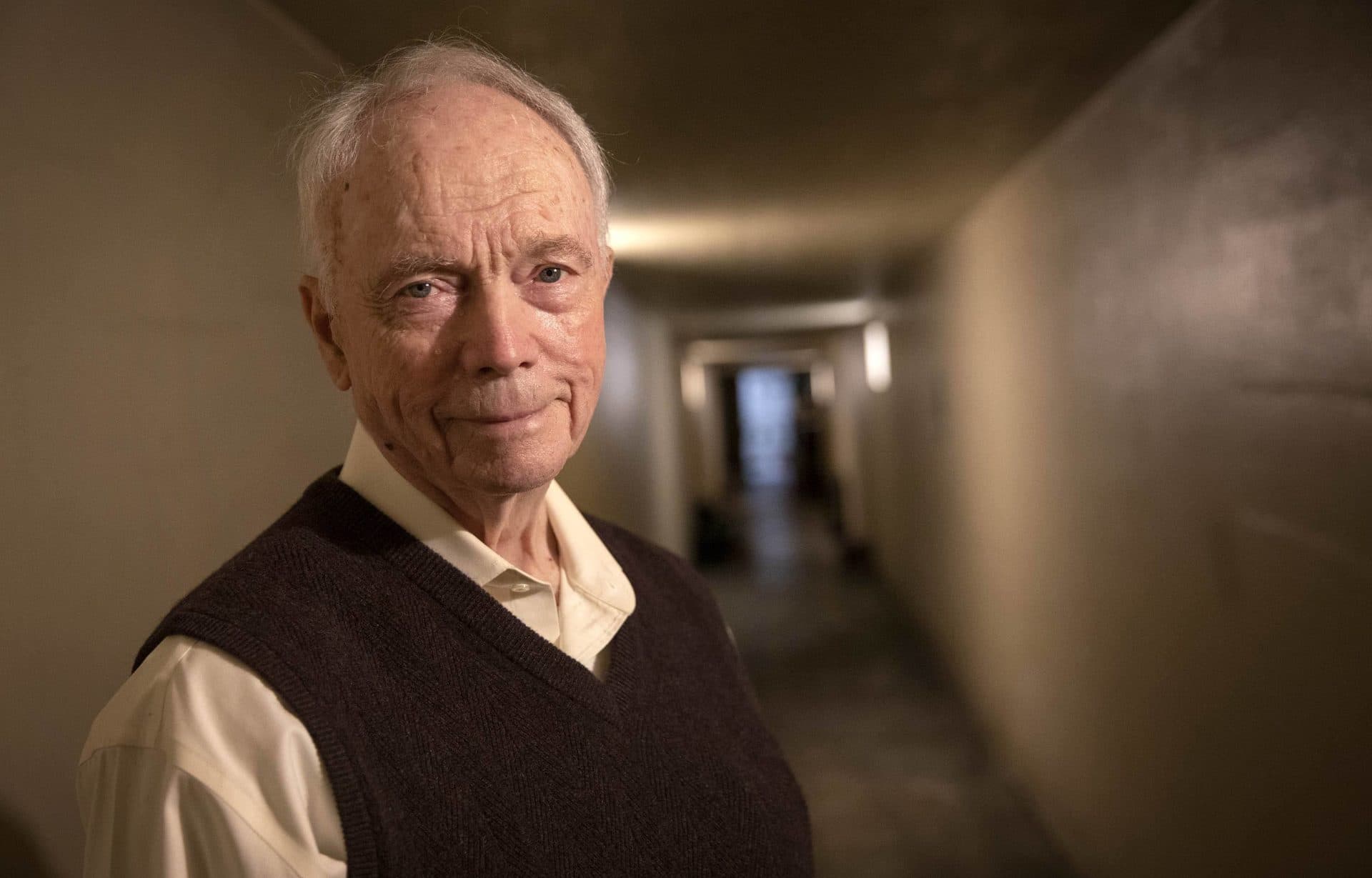
The process starts by performing a deep-dive analysis of a building's use of energy, retrofitting it to maximize efficiency. Then the facility is upgraded with a combination of solar panels, green generators (which use natural gas or biofuel stored on site), and batteries to create a system that can both generate and store energy.
Dayton's cloud-controlled microgrid makes makes it possible to remotely manage the back-up electric system.
He calls his plan energy democracy.
"Energy is a human right. We want to create what I call fossil-free zones around low-income communities," he said.
The Massachusetts Clean Energy Center provided funding for Dayton's company to analyze the energy needs and cost-benefits of installing a cloud-based microgrid for Chelsea's city hall, 911 and police headquarters.
The plan is to get the Chelsea system up and running by 2023, and then add local hospitals and low-income housing to the microgrid at a later date.
Providing climate-resilient power and empowering communities
The goal, Dayton said, is to make communities more climate resilient, providing power during outages and empowering residents.
And because his system is cloud-based, he can connect buildings that are miles apart, turning them, in effect, into "virtual power plants."
"As more and more buildings join, my power plant gets bigger and bigger," Dayton said. With a few hundred kilowatts being stored in various buildings around Chelsea, "Now you're up to into the megawatt range. We're talking about serious power."
"Energy is a human right."
David Dayton
That power generated locally by a microgrid can be used to help the regional electric grid during times of peak demand. In effect, the microgrid become what engineers call "energy islands" to relieve some of the demand or energy load on the utility's system.
"I can remove the whole load of those buildings from the grid instantly," Dayton said with a wide smile.
That's when he believes his microgrids will prove their worth in terms of economic and climate resilience. Anyone on the microgrid could store power during low-cost, off-peak times, and detach from the utility grid to use those reserves during peak times, when power rates are the most expensive. Buy low, sell high.
"It's worth a huge amount to grid managers, so that's what pays for it," he said.
Dayton believes his cloud-controlled microgrids can pay for themselves in a decade or less. Massachusetts Municipal Vulnerability Preparedness Program is putting up the $1 million Chelsea will need to construct phase one.
It's those numbers that have other communities interested in Dayton's plan.
"Who doesn't want greater protection from power outages,"asked Lydia Lowe, executive director of Chinatown Community Land Trust. "Who doesn't want the potential for energy savings?"
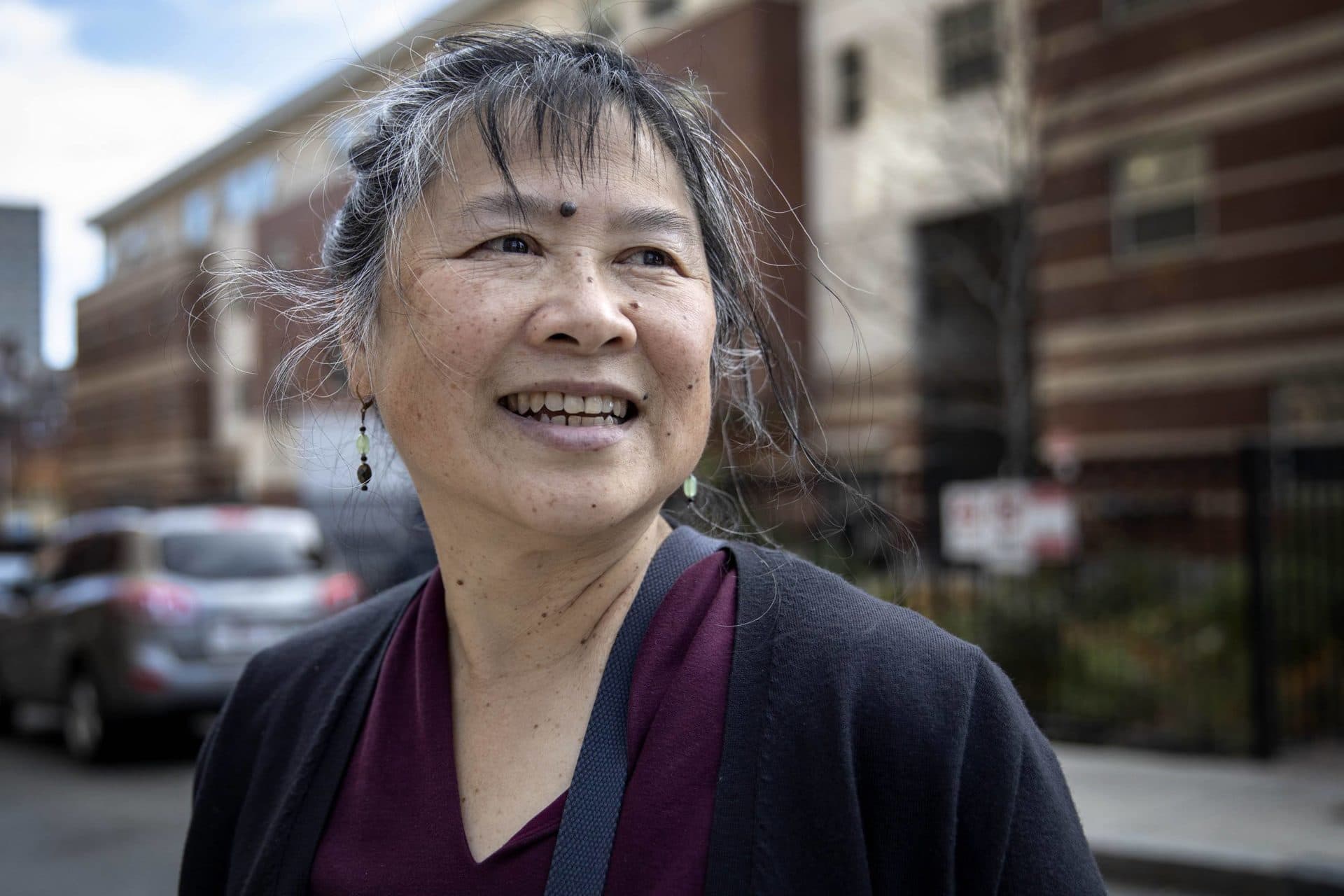
Lowe wants to build one of Dayton's microgrids in Chinatown. It too is an environmental justice community threatened by climate change. Much of the neighborhood, which sits close to Boston Harbor, is projected to flood as the waters rise. And air pollution from cars on nearby Interstate 93 and the Mass. Pike produce unhealthy, high levels of particulates.
The Land Trust and Chinese Progressive Association recently created a public benefit company called Chinatown Power to build a cloud microgrid linking two affordable housing apartment buildings. The two organizations, along with Chelsea's GreenRoots, are part of a broader association of nonprofits called the Green Justice Coalition, which is interested in preserving affordable housing and developing energy resilience for low-income communities.
Lowe said she hopes as many as a a dozen buildings that participated in Dayton's pilot feasibility studies will install microgrids.
"I don't know if people thought we were for real, " Lowe said, "but we're now at the point of really starting something."
"Who doesn't want greater protection from power outages? Who doesn't want the potential for energy savings?"
Lydia Lowe
Because Chinatown is so densely populated, a dozen buildings on the microgrid could generate a lot of back up power and provide energy resiliency to many residents.
Dayton said Eversource still has to agree to the projects, but he has big plans. Chelsea wants a city-wide microgrid, he said, and both Chelsea's and Chinatown's projects could tie in electric resiliency to routers linked to microwave towers and satellite dishes, "so we can offer resilient internet access for low income people at affordable prices."
It doesn't end there. Cambridge has expressed interest in microgrids, and both Dayton and Maltez said Winthrop and Revere have also reached out to them. For cloud-controlled microgrids, the sky could really be the limit.
This segment aired on November 24, 2021.
